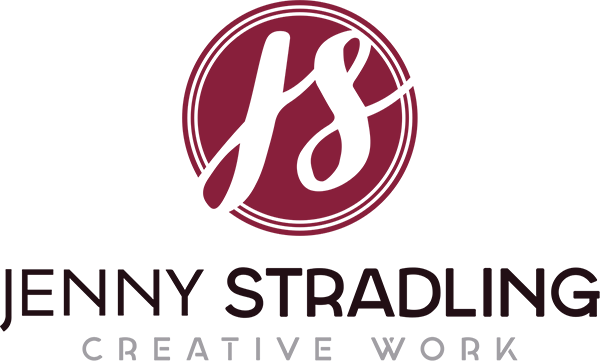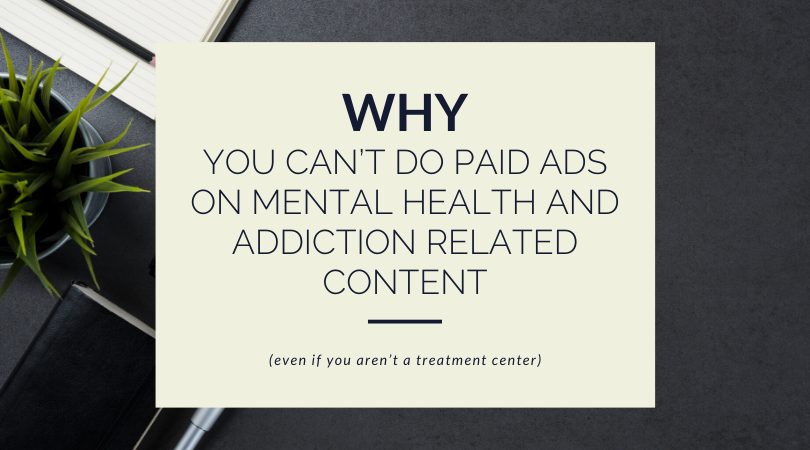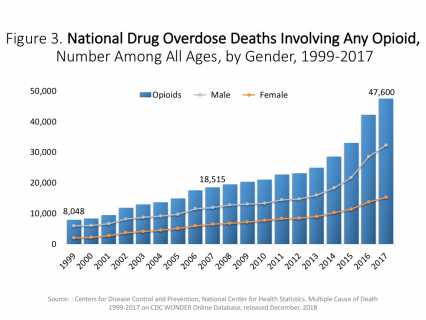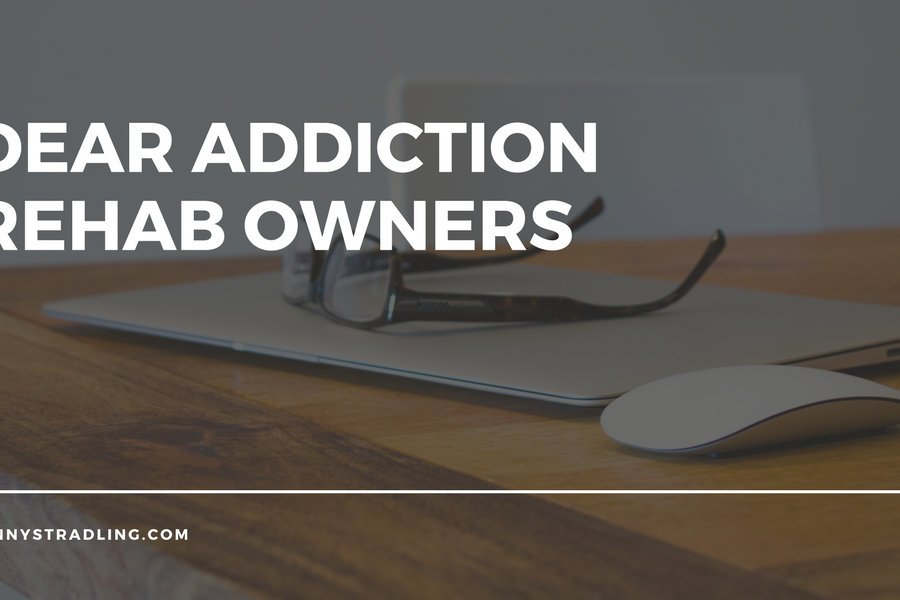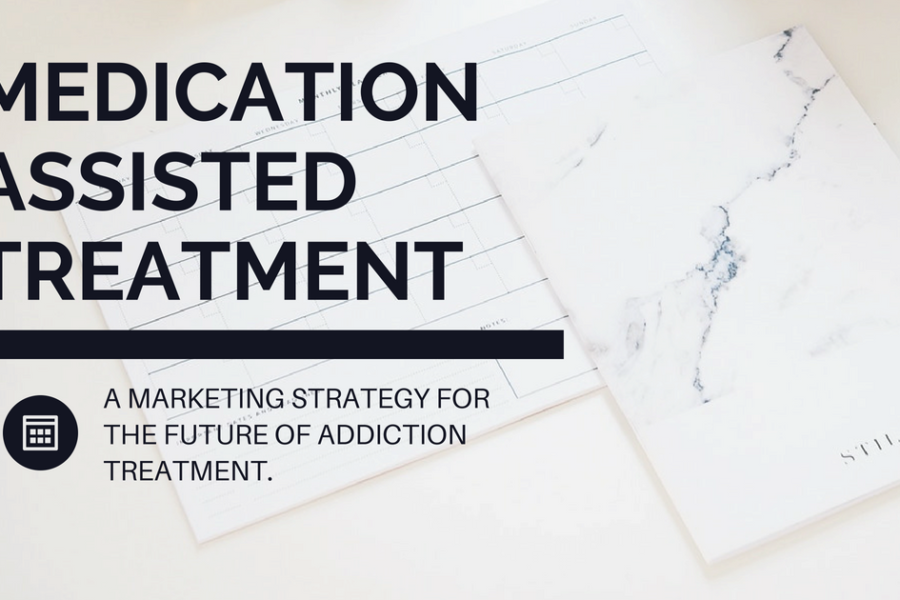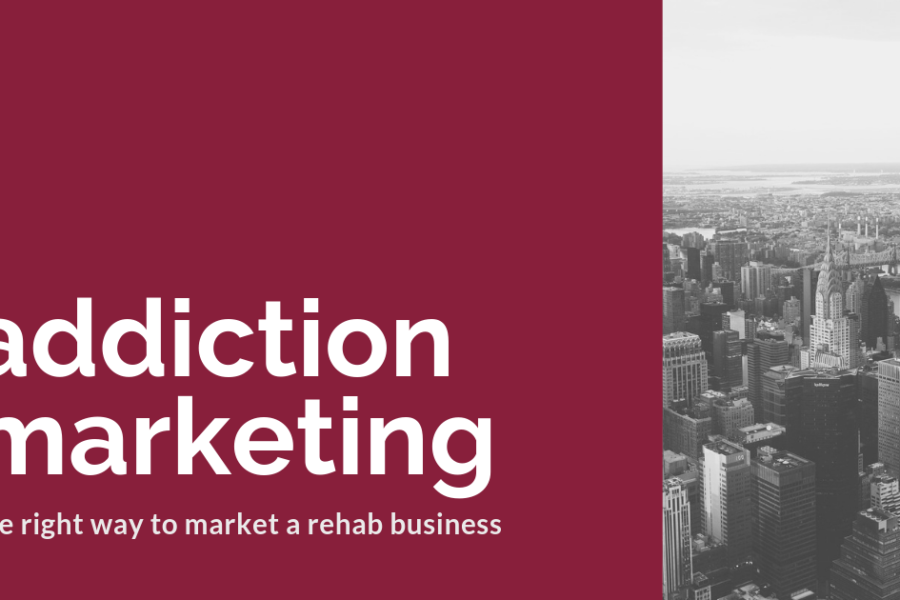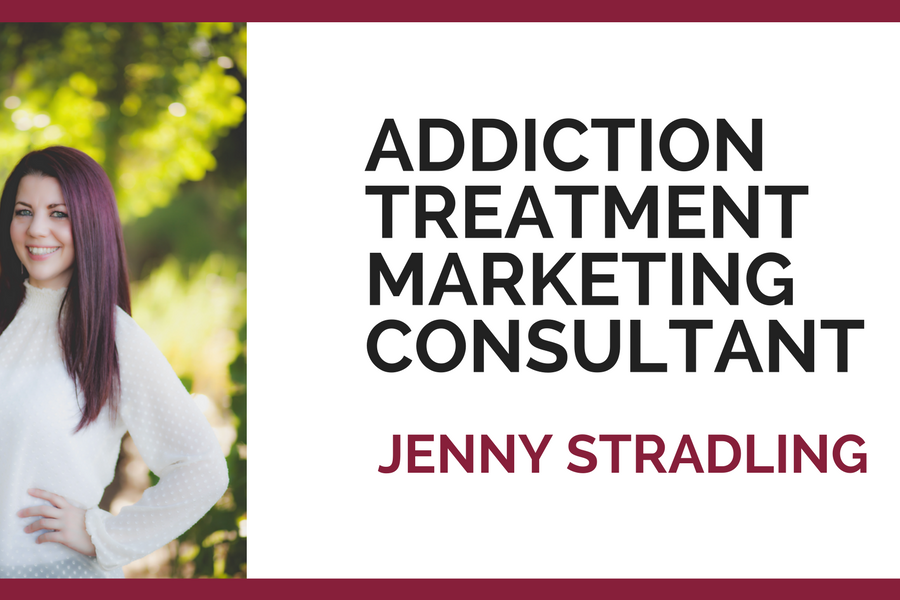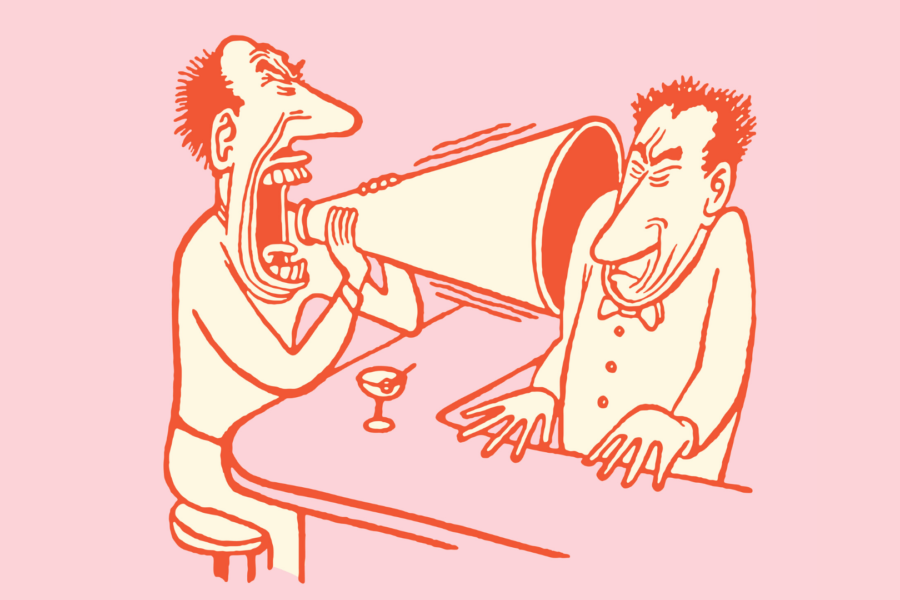Not too long ago an industry friend and expert SEO, Alan Bleiweiss, asked a question related to SEO and mental health- specifically addiction treatment.
I thought I would take a moment to write up and share my thoughts to help clarify for anyone else who is frustrated and might have not spent as much time as I have on this issue specifically.
I hope Alan doesn’t mind the post. My hopes are that others who read it will understand why Google sees mental health and addiction terms as keywords that belong in a restricted ad category and how LegitScript certification requirements are a move to try and combat a bigger, growing issue.
So, here is his public Tweet:
Google logic is nonsense. Client with knowledge base in the mental health arena (psychologists, counselors, therapists are the experts) & therapist directory, is having their @google ads flagged for the word “dopamine” and pages are being invalidly flagged “Addiction Services”.
— Alan Bleiweiss (@AlanBleiweiss) October 28, 2019
My response (on Facebook, this was too long for Twitter, obvi) and a few more questions answered to help clarify:
Hi Alan,
Facebook and Google require LegitScript certifications for a number of keywords now. It would seem it’s done by service / industry, but we have tested it and it’s not. For example, a rehab without their LegitScript certification might still be able to boost blogs on Facebook that don’t mention “addiction treatment”, but as soon as you try to place an ad for services, you’ll get a notice saying you need to submit proof of LegitScript.
Google is a little stricter at the account level with specific types of businesses. However, anyone can still bid on terms they don’t deem as part of the group that requires the certification. So, even though your client might not offer these services, if Facebook or Google seems the term as semantically relevant to a query in that group, they are going to auto-flag your ad.
Many treatment centers have been buying “referrals” or leads from a whole number of hotline sites, support groups on Facebook, etc. So, it make sense that even editorial sites would now need to prove they are owned of a facility if they want to bid on service terms.
If your client is one of these 3 things, they need to get certified or they cannot bid:
- In-Person Addiction Treatment (Google, Bing, and Facebook): Any website, application, or merchant that provides information about in-person drug or alcohol addiction treatment, or facilitates in-person or online drug or alcohol treatment, other than at a private residence or non-clinical setting.
- Mutual Support Groups (Google, Bing, and Facebook): Any website, application, online forum, or merchant that does not offer treatment for drugs or alcohol, but that facilitates interactions between non-professional members engaged in recovery.
- Crisis Hotlines (Google and Facebook): Any website, application, call center, chat feature, or telephone number that provides or purports to provide remote assistance or information to individuals who are in recovery or who are seeking information about addiction or addiction treatment, or to any person associated with such individuals, that does not identify particular treatment facilities or entities on the site itself.
Since you mention they are a site similar to psychologytoday.com I would assume they are a “Crisis Hotline”, as they are directly promoting “Getting Help”. Because of that they would need to have a certification to even bid on those terms.
However, lead generators do not qualify at this time: LegitScript Addiction Treatment Center FAQ’s
This doesn’t mean a website can’t bid on other terms with Google, it simply means they can’t bid on terms related to addiction, drugs or getting treatment.
To help explain that point even further, here is a little more background for those who might not know.
Patient Brokering (and other shady stuff)
There was a period of time when the law didn’t clearly state exactly what patient brokering was and it was not specifically made illegal.
Florida passed the Patient Brokering Act in 2017 that made it a crime for any person, including health care providers and facilities, to offer or receive kickbacks, bonuses, commission or rebates, or engage in any split-fee arrangement, in return for referral of patients or patronage to or from a healthcare provider/facility.
However, up until then, it was clearly a gray area as it was pretty much the norm and “everyone was doing it” even if they meant to or not.
See, if you buy a lead from someone else and that person comes to treatment, you have technically brokered this deal – and in addiction treatment that is considered patient brokering.
Sure, not everyone was out there doing the really dirty form of “body brokering” (which is so disturbing I don’t even want to write about it again, so here, read this: ‘Body Brokers’ Get Kickbacks To Lure People With Addictions To Bad Rehab).
But, when 200 people are dying a day from drug overdoses in America and the number of deaths involving prescription opioids appears to be steadily climbing….
It’s clear to see that change has to happen.
If private rehab was the answer, than why is the problem growing? Why are individuals going to rehab 5-6, sometimes 10-20 times?
Really, it’s no wonder insurance companies don’t want to pay for treatment over and over again. Rehabs want to charge top dollar for services with no proven outcomes.
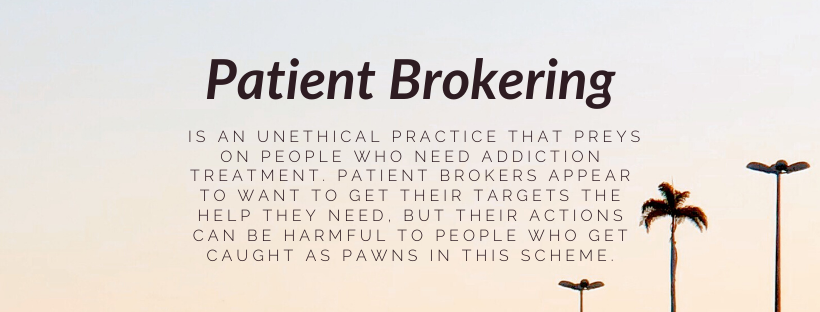
The government started with Patient Brokering laws and Google realized they were going to be in trouble really fast if they allowed paid advertisers to bid on those terms, only to find out the sites buying ads were generating and selling leads illegally.
They wanted no part of that, so, just like they did with pharmaceuticals, supplements and now CBD – they decided to negate their own risk by putting a third party vetting company, LegitSctipt, in charge of determining if a site should be eligible to bid on specific terms around addiction, drugs and related services.
Read this post if you want the full lowdown: Can Rehabs Survive Big Changes to the Addiction Treatment Industry?
So, in a nutshell, the reason you can’t bid on mental health and addiction terms now is…
Google (and later Facebook and Bing) decided to limit ad purchases for specific treatment terms and add a certification process in order to cover their own butts and avoid expensive lawsuits and (more) bad press.
Other Questions about LegitScript Certifications and Paid Versus Organic Marketing Mental Health Terms
Can a non-treatment site get LegitCertified?
Technically yes, if they are owned by a facility who also has a website and they are using the lead generation site to drive leads for themselves.
However, if you are trying to buy ads on Google or Facebook and you want to bid on anything related to drugs, addiction or treatment services, you must prove that you are a licensed provider of care in order to get the certification to run ads on any of your sites.
If you are not an in-person drug or alcohol addiction treatment center, and you don’t facilitate in-person or online drug or alcohol treatment, you can also apply if you are:
- A Mutual Support Group
- A Crisis Hotline
Do you have to take down addiction content so you can do ads if you aren’t certified?
No. You this isn’t even an option. Google restricts advertising for recovery-oriented drug and alcohol addiction services at the ad account level. Which means that Google allows only addiction services advertisers to bid on keywords relating to drug and alcohol addiction.
However, if you are a larger entity that writes about other topics and wants to boost those keywords / pages, you can, as long as they are not part of the group of terms the platform has decided needs the certification.
Also, if the content is helping the site rank organically, it’s worth keeping for organic search traffic.
Can you rank organically in Google for drug or mental health terms if you aren’t certified?
Yes. However, the Google organic algorithms also adjusted to adopt better ways of measuring the trust of a site that is trying to rank for terms related to “YMYL” (Your Money or Your Life) terms. So, if you want to use SEO as your primary strategy and aren’t concerned (or not eligible) for paid ads, you still must adhere to the standards Google now wants from you if you expect to rank organically for YMYL related keywords.
Basically, if a human search evaluator manually reviewed your site, they would want to make sure that the content offered serves a beneficial purpose and that the keyword matches the page E-A-T (Expertise, Authoritativeness, Trustworthiness), or Page Quality, it’s trying to rank for. YMYL content is the type of information that, if presented inaccurately, untruthfully, or deceptively, could directly impact the reader’s happiness, health, safety, or financial stability.
If I am LegitScript Certified, can I link to non-certified websites?
If you are hosting links to any other sites and you want to get certified at some point with LegitScript (say you own a facility and also lead gen sites, for example), they will check to make sure anyone you are linking to is also certified. If not, you will need to remove the link / endorsement of this other rehab or you will not qualify.
Facilities who have named their own websites in the application can still use non-facility sites to run ads and generate leads. Remember, they only have to prove that the site is owned by a facility and the leads are not getting sold to another non-certified entity.
If I am a recovery residence or lead generation site, can I get LegitScript?
No, not at this time. To clarify, when they say “recovery residences” they mean housing and not “residential treatment centers,” which are fine.
To LegitScript, you are considered a “recovery residence” if:
- You aren’t providing clinical addiction treatment services or your services are only offered in a non-clinical environment);
- You provide a shared housing / living environment; and
- The location is non-commercial. Meaning, it’s a private residence or similar setting, and it isn’t part of a larger treatment program offered by a licensed and qualified addiction recovery services provider.
You are considered a “lead generator” if:
- Your website is not owned or controlled by the entity that also owns or operates the addiction treatment provider to which it refers internet users; and
- You refer potential clients to third party addiction treatment providers, regardless of whether those addiction treatment providers independently meet LegitScript certification criteria.
They are pretty clear about what their intent is here on their site:
“This is not intended to prohibit bona fide addiction treatment applicants that, as an ancillary part of their business, refer patients to other addiction treatment centers. It is intended to prohibit applicants for whom the primary business strategy is compensated, for-profit referrals and that otherwise meet the definition of these bullets.”
A Final Thought for Rehab Lead Generation Sites
For anyone trying to manage a site with a lead generation component – such as a directory, for example, know that you will not be able to run any ads to pages or for keywords related to rehab services. Which means organic marketing, such as SEO, is probably your smartest strategy moving forward.
There are a few other creative things you can do as well. I touched on some of them in this post: Ethical Addiction Treatment Marketing Alternatives to Paid Ads.
We can still rank anyone for anything in this industry, even lead generation and affiliate sites.
But you can’t sell the leads.
There are things you can do to monetize your website traffic and partner with ethical providers who can say, buy marketing and advertising from you. However, you CANNOT generate treatment leads and then sell them.
If you are trying to do that, well, I hate to break it to you, but that is patient brokering. And, if you don’t have a real strategy to ethically and legally help the people who are searching… well, what business do you have trying to do marketing for mental health and addiction terms anyways?
Citations:
Addiction Treatment Certification
LegitScript Addiction Treatment Provider Certification Standards
